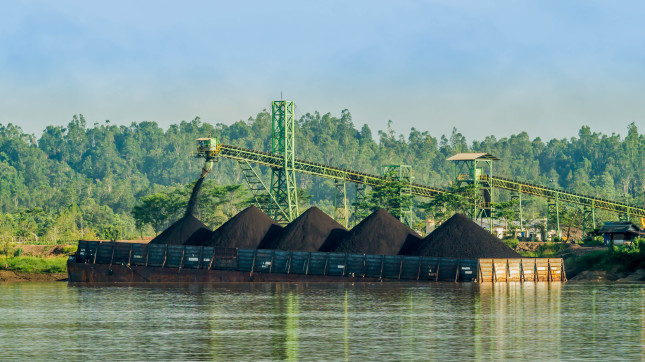-
Indigenous Partnerships Can Bring Progress in LAC Energy Projects
›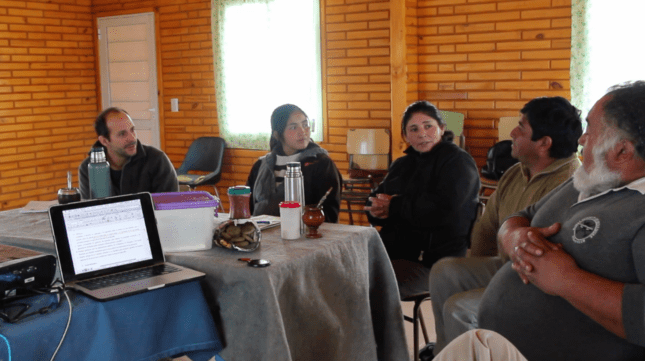
Este ensayo se actualizó con una traducción al español, disponible después de la versión en inglés, a continuación.
Latin American and Caribbean (LAC) countries have committed to transitioning to a net zero economy by 2050. Will they be able to do so without leaving anyone behind? It is unlikely, if business models don’t change.
An annual investment of $700 billion will be needed to curb emissions from the energy sector and its end uses, as well as from agriculture, forestry and other land use. In the clean energy sector alone, investment must increase nearly fivefold from its 2022 level.
-
Clearing War Debris Can Help Ukraine Move Forward
›
When Russia launched its brutal invasion of Ukraine on February 22, 2024, Western nations supported Ukraine with military and financial aid. But over two years, the cost of the war has been devastating—not only in terms of lives lost, and injuries sustained, but also in the number of buildings destroyed. According to some estimates, more than 150K structures have been damaged in the conflict.
-
China’s EV Power Grid-lock: A Coin Toss for Decarbonization?
›Usually, Ms. Li charges her BYD electric car at a TELD station during her half-hour lunch break. However, today was different – it took an extra ten minutes to complete the charging, providing her time to enjoy a cup of coffee. This slight delay was due to her participation in a Shanghai demand response pilot designed to encourage consumers to adjust electricity usage according to electricity grid conditions. Like a coin toss, this pilot could be a big win for protecting the grid and accelerating low-carbon transport in China, but many infrastructure obstacles could derail this decarbonization.
-
ECSP Weekly Watch | November 13 – 17
›
A window into what we are reading at the Wilson Center’s Environmental Change and Security Program
A Fifth National Climate Assessment
The US Global Change Research Program launched the fifth National Climate Assessment (NCA) on Monday, November 13. Published once every five years, the NCA is the United States’ leading report on climate change impacts, risks, and responses.
-
Relief, Recovery, and Peace: David Nicholson on COP28’s New Theme
› In a new mini-series previewing the upcoming UN Climate Summit (COP28)’s new focus on relief, recovery, & peace, ECSP Program Director Lauren Risi spoke with David Nicholson, Director of the Environment, Energy and Climate Change Technical Support Unit at Mercy Corps.
In a new mini-series previewing the upcoming UN Climate Summit (COP28)’s new focus on relief, recovery, & peace, ECSP Program Director Lauren Risi spoke with David Nicholson, Director of the Environment, Energy and Climate Change Technical Support Unit at Mercy Corps.Nicholson described his role in ensuring that climate change is at the center of Mercy Corps’ wide-ranging and successful global humanitarian aid programs in 42 countries—and the importance of having local staff to make interventions a true partnership. He also talks about climate finance, and his hopes that COP28’s theme of “relief, recovery and peace” will advance the view that peacemaking is essential to adaptation efforts.
-
Relief, Recovery, and Peace: Iris Ferguson on COP28’s New Theme
› In a new mini-series previewing the upcoming UN Climate Summit (COP28)’s new focus on relief, recovery, & peace, ECSP Program Director Lauren Risi spoke with Iris Ferguson, the US Department of Defense’s Deputy Assistant Secretary of Defense for Arctic and Global Resilience.
In a new mini-series previewing the upcoming UN Climate Summit (COP28)’s new focus on relief, recovery, & peace, ECSP Program Director Lauren Risi spoke with Iris Ferguson, the US Department of Defense’s Deputy Assistant Secretary of Defense for Arctic and Global Resilience.Deputy Assistant Secretary Ferguson spoke about why climate security has become a crucial element in DOD planning, as well as why the department will have a highly visible presence at COP28. She also shared the story of her own path to leadership at the Pentagon – as well as why her position includes both global resilience and the Arctic.
-
China’s Belt and Road Initiative: Powering a Low or High Carbon Future?
›China Environment Forum // Guest Contributor // Vulnerable Deltas // September 28, 2023 // By Chuyu LiuChina’s Belt and Road Initiative (BRI) can significantly affect the country’s domestic and overseas energy transition and decarbonization agenda. Electricity projects in China’s BRI investments, contrary to popular impressions of being part of a monolithic “project of the century,” have divergent implications for the host country’s shift away from coal-based power plants.
-
Shifting the Climate Security Narrative: How the Department of Defense Can Lead
›
In 2021, US Defense Secretary Lloyd J. Austin III referred to climate change as an “existential threat”—a term traditionally reserved for nuclear weapons. Yet two years and several strategic plans later, tangible progress to mitigate and prepare for this threat remains elusive, especially on the international scale where the greatest impacts could be realized.
Showing posts from category Infrastructure.



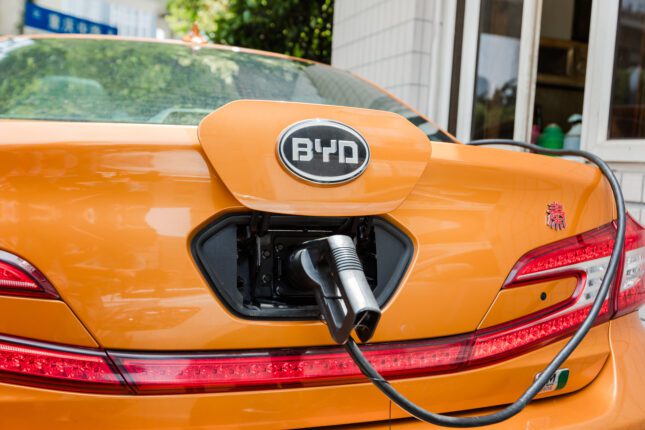

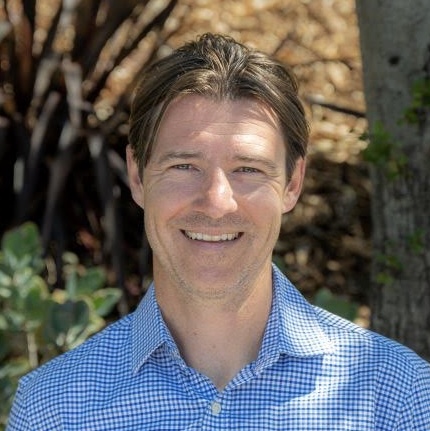 In a new mini-series previewing the upcoming UN Climate Summit (COP28)’s new focus on relief, recovery, & peace, ECSP Program Director Lauren Risi spoke with David Nicholson, Director of the Environment, Energy and Climate Change Technical Support Unit at Mercy Corps.
In a new mini-series previewing the upcoming UN Climate Summit (COP28)’s new focus on relief, recovery, & peace, ECSP Program Director Lauren Risi spoke with David Nicholson, Director of the Environment, Energy and Climate Change Technical Support Unit at Mercy Corps.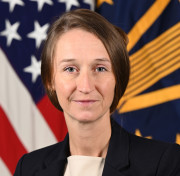 In a new mini-series previewing the upcoming UN Climate Summit (COP28)’s new focus on relief, recovery, & peace, ECSP Program Director Lauren Risi spoke with Iris Ferguson, the US Department of Defense’s Deputy Assistant Secretary of Defense for Arctic and Global Resilience.
In a new mini-series previewing the upcoming UN Climate Summit (COP28)’s new focus on relief, recovery, & peace, ECSP Program Director Lauren Risi spoke with Iris Ferguson, the US Department of Defense’s Deputy Assistant Secretary of Defense for Arctic and Global Resilience.